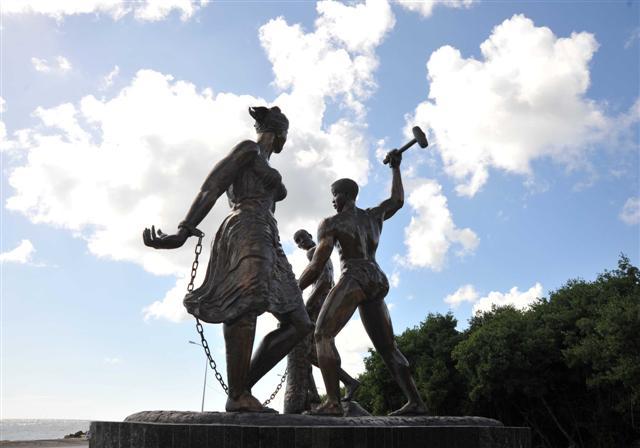edited - some content transferred to newer post.
ANANSI: researching the West African stories
Ask an average passer-by what he or she knows about Anansi, and if you get an answer at all, you are guaranteed to hear that they are children's stories, thanks to the many children's films and books about Anansi. There are indeed children's stories about Anansi, but there is more: the spider Anansi is a mythical figure and a sly trickster in Akan culture in West Africa. He is the son of the Akan earth goddess Asase Yaa, and his folk tales have been told for centuries.
village scene in central Ghana copyright H.Schalkwijk 2012
The word Anansi literally means "spider" in the Akan language, which is spoken in today's Ghana and across the border in Ivory Coast. The stories are usually told after dark because the spider and its legs have the shape of the sun with rays, and it isn’t wise to tell the tales in daylight. The stories of Anansi travelled to Suriname and the Caribbean with the slave trade. Anansi gave slaves on the plantations courage as his devious tricks made him equal even to a powerful enemy.
 |
| Anansi... copyright Ted Polet |
There are a few good examples of the stories on the Wikipedia page about Anansi. They were transcribed a hundred years ago in West Africa by Africanist R.S.Rattray, and they are also told on the Caribbean islands and in Suriname. Surinamese author Anton de Kom wrote down a collection of stories in his book Anangsieh Tories. On the Caribbean islands the spider is called Nanzi, or sometimes Aunt Nancy.
Anansi is very similar in character to his European counterpart, Reynaerd the Fox. There is even a connection with the stories about Brer Rabbit, which were told on the North American plantations (well-known are the stories of Uncle Remus, written by Joel Chandler Harris). For example, Anansi fights with Tar Man, a sticky scarecrow, to which he becomes glued for his pains. There is a similar story about Brer Rabbit and the Tar Baby.
Disclaimer
African storytellers often start with the disclaimer that their tale is just a rumour, a story that you should not pay too much attention to. Just in case someone in the audience feels slighted!
Like the African storytellers, I also have a disclaimer. I may have done a great deal of research, but I also know my limitations. As an author without African, Caribbean or Surinamese roots you can never actually penetrate the culture beyond few millimetres - skin deep, so to say. My book Anansi is a story that never really happened, but it is set against the background of the slave trade and the plantations. I have researched the subject as well as possible, but undoubtedly there is much that I overlooked. If I have made mistakes, at least I can say they are honest mistakes.
Research and doubt
ANANSI (like my other books) has as its primary theme a relationship between two people from different cultures, who in spite of persecution hold on to each other. I use the slave trade in all its horrors as a background for the story, but the true subject is the hope of freedom shared by the main characters, about love and perseverance and the sacrifices that you make for one another.
I worked on the book for a year and a half and often doubted the wisdom of my choice of colonial slavery as a background, especially since you can never satisfy everyone with such a controversial subject: some will find that I am not 'woke' enough (I hate that terrible word), others that I am blotting the 'glorious' past. That is why I tried to look objectively at all the available material during my research. That proved quite difficult: the more I read about this black page in history, the more I was dragged into it.
 |
| source: https://www.britannica.com/topic/slave-trade |
I recently bundled all my notes into a single text file, containing texts of websites, articles by historians and extracts that I made myself - lists with points of attention after reading books or websites. The entire list covers a stunning 95,000 words, as much as the size of the book itself.
Comparing all the source material turned out to be a huge task, because a lot has been written about slavery and much cannot be considered complete or correct. Authors of articles on the internet sometimes contradict each other, or their opinion is biased. But after filtering out all the contradictions, a deeply disturbing picture about the slave trade and the plantation economy remains. I have described some atrocities in Anansi, but I never exaggerated a thing. If anything, reality was worse than I dared write, or the book would make too unpleasant reading.
Even now, I still discover new sources that put some things I wrote in Anansi in a different light. Then doubt hits me again: did I write well enough? Can I do better? Doubt is the author’s best tool.
To be continued.







